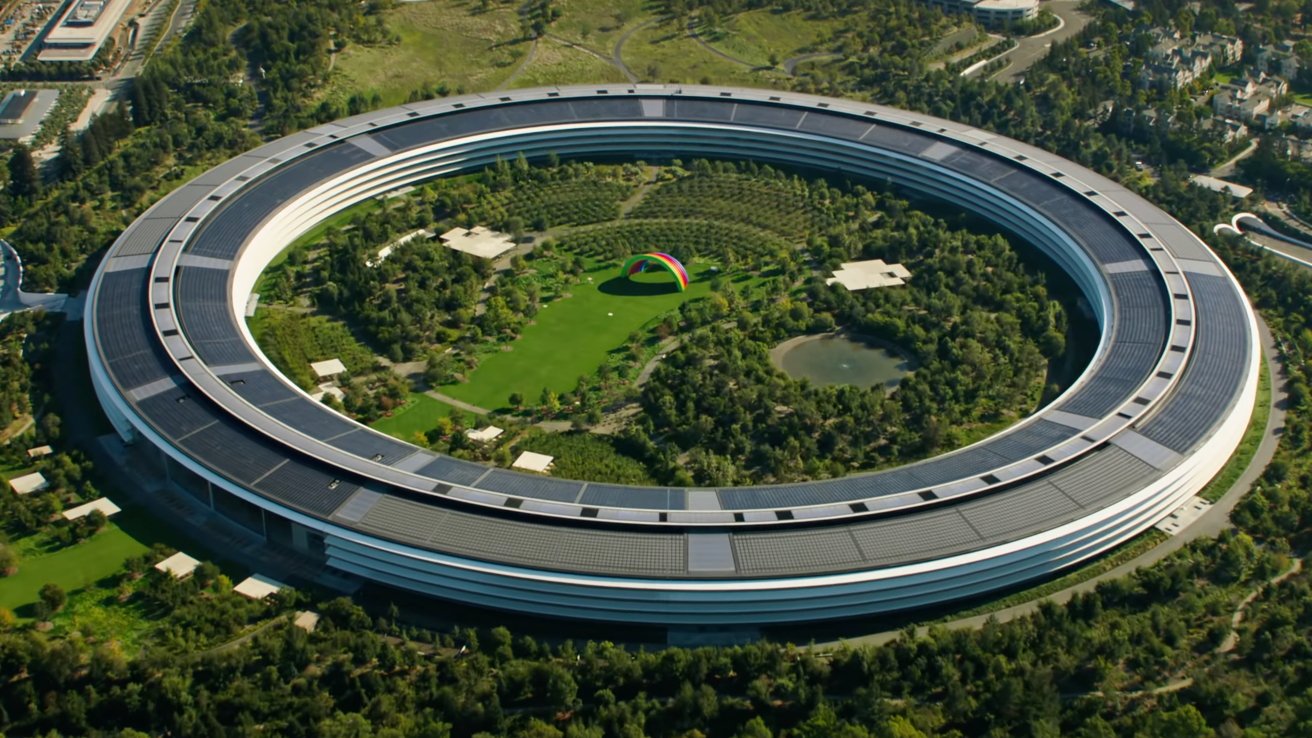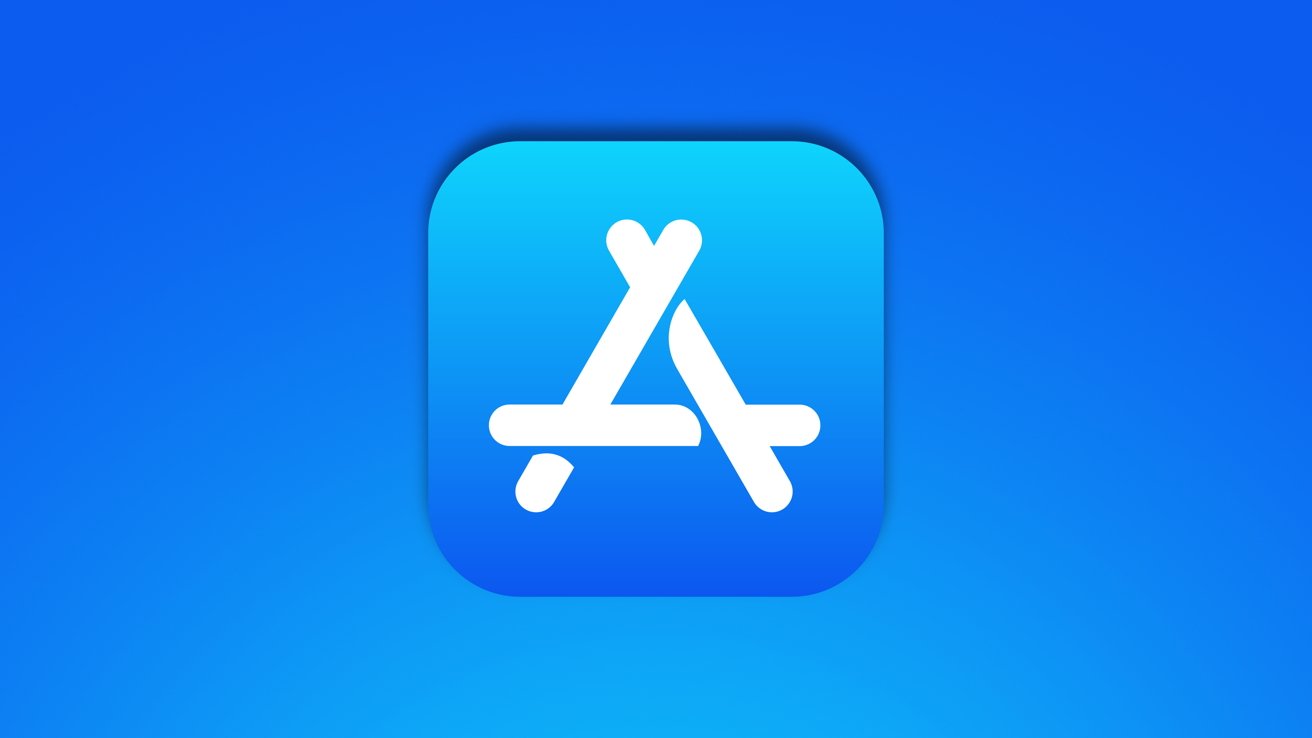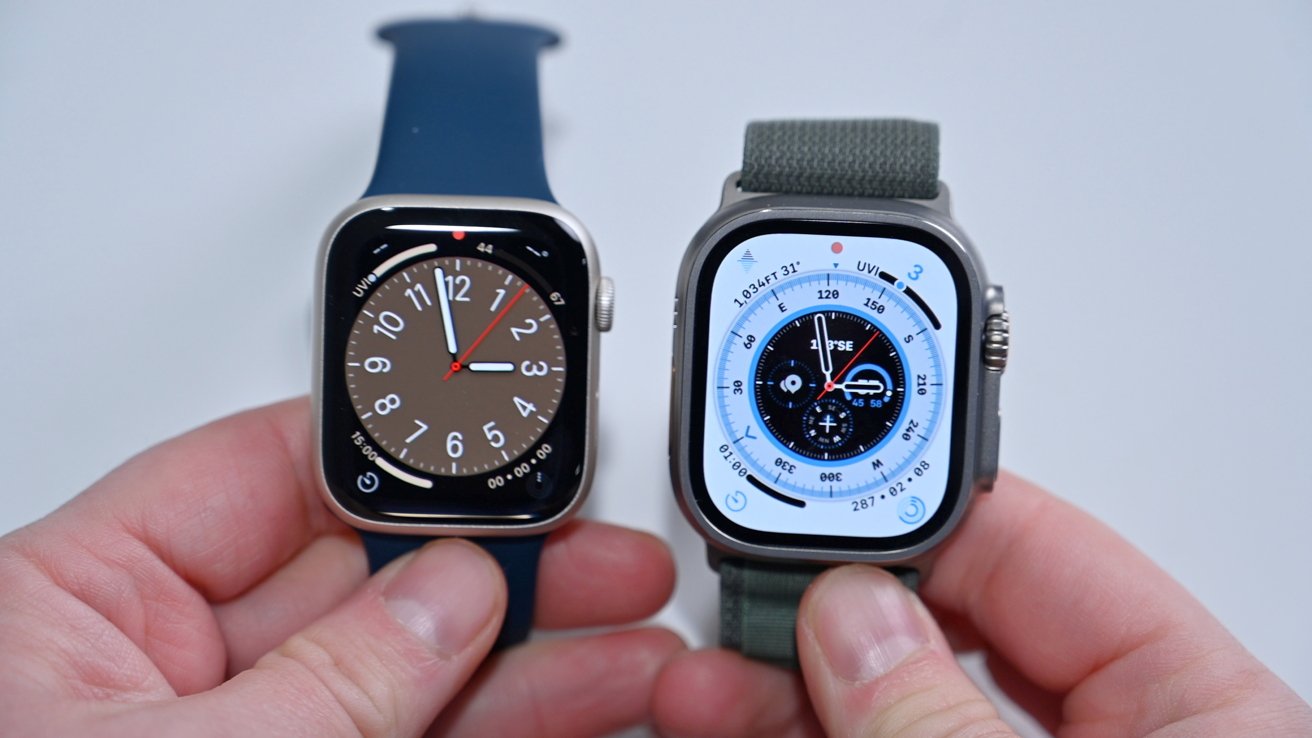Apple responds to DOJ antitrust lawsuit by refuting every claim
The US Department of Justice claims Apple has violated antitrust law on multiple fronts -- and Apple has fired back by refuting every claim made in the lawsuit.

Apple Park
After years of promising a lawsuit, the US Department of Justice has finally brought an antitrust suit against Apple. Nearly a week of pundits and analysts have dissected the claims, and now Apple has weighed in publicly.
The DOJ lawsuit accuses Apple of violating section two of the Sherman Antitrust Act in five ways. In a statement shared with AppleInsider, Apple has refuted each of the claims, stating they are either based on outdated information or misrepresentations of the company's business model.
First, Apple takes issue with how the lawsuit defines Apple's market share as exceeding 65% in the US based on revenue. When based on unit sales, Apple is less than half the US market.
Here's how the primary claims and Apple's responses to each break down.
On contracts and commissions
The DOJ claims Apple imposes contractual restrictions and fees that limit features and functionality that developers can offer iPhone users. Plus, Apple selectively restricts which APIs developers have access to, degrading non-Apple app functionality.

Most developers don't owe Apple any commission
Apple responded by stating that the claim was misleading. Any rules or limitations that are in place exist to protect user privacy, security, and experience. What developers do outside of Apple's platforms isn't part of the contract.
The DOJ's issue with Apple's 30% commission doesn't mention that 85% of developers don't pay any commission, and a vast majority are eligible for a reduced 15% commission. Apple's commission has been tested in court before by Epic, and Apple won on that front.
On restrictions applied to super apps
Whatever the DOJ might say in its lawsuit, Apple says it has never stopped a so-called "super app" from existing. It provided examples of super apps that thrive on iOS today, such as Facebook, WeChat, and Line.
Until the DOJ makes its case outside of the initial filing, it won't be clear why it called out super apps specifically.
On cloud streaming services
Apple says streaming game services have always been allowed on the App Store. The company has even made changes to its guidelines to further promote game streaming.

Game streaming is an option on iOS
The rule changes may have arrived too late for Xbox to care, but Microsoft choosing to take advantage of the feature isn't a problem for the DOJ's antitrust case.
On excluding cross-platform messaging apps
The DOJ is concerned that SMS being only available in Apple's Messages app and not available in third-party apps is an anticompetitive move on Apple's part. However, Apple has no data that shows users desire SMS elsewhere, and it's not a feature used by popular platforms on Android.
For example, WhatsApp doesn't offer SMS and Signal is dropping SMS support on Android.
Further, SMS limitations like lack of encryption and tiny file sizes aren't something Apple invented. It is inherent to SMS, but a new fallback universal option called RCS is coming to iOS which will be better for Android to iPhone communications.
On diminishing non-Apple smartwatch function
For Apple to offer wide support for any third-party smartwatch would require the company to account for every model, operating system, and more to allow interoperability. The DOJ's claim that Apple restricts the functionality of non-Apple smartwatches relies on it being anticompetitive rather than technically non-feasible.

Technical obstacles prevent Apple from supporting every smartwatch
The fitness bands and smart watches that do work with iPhones today gain access using Apple-made APIs. To force users to abandon these products in favor of Apple Watch wouldn't make good business sense.
On limiting digital wallets
The technology surrounding NFC, the Secure Element, and Apple Wallet exist to promote ease of use, safety, and security for the customer. Third parties are able to take advantage of the technologies via APIs but cannot gain direct access to the NFC technology.
Apple claims these aren't anticompetitive measures but a result of how the technology is implemented to protect the user. Third parties get access to tap-to-pay via Apple Wallet, and if developers want users to make contactless payments in an app, like Walmart Pay, there are APIs for that as well.
On switching to Android
Whether it's due to iMessage lock-in or features only available on iPhone, Apple argues that its competitive advantages don't keep people from switching to Android. In fact, Apple makes it easy to transfer data from an iPhone to an Android device.
The DOJ claims Apple locks customers in with anticompetitive tactics. Apple offers a simple counter -- perhaps the customers just love Apple products.
Finally, the DOJ compared Apple to Microsoft. There's a lot wrong with this comparison, but Apple leans on the market share aspect, as the company has about 20% of the global smartphone market share by units.
The DOJ antitrust lawsuit has only just been filed. Expect this case and its appeals to last into the next decade if previous big cases are an example.
Read on AppleInsider

Comments
So, we are to assume the claim, at its core, is correct. If it weren't, Apple would have said outright it was wrong.
"The DOJ's issue with Apple's 30% commission doesn't mention that 85% of developers don't pay any commission, and a vast majority are eligible for a reduced 15% commission. Apple's commission has been tested in court before by Epic, and Apple won on that front."
What happens in one trial isn't necessarily relevant to what can happen in another.
That 85% don't pay anything is utterly irrelevant. The point is that the remaining share is enough to generate billions upon billions in revenues because there is literally no competition allowed. Everything in that other group goes to Apple because alternative stores are not allowed to exist.
The same applies to the 'reduced' 15%' which only ever came into effect through regulatory scrutiny and complaints. Without that Apple wouldn't have conceded anything.
"However, Apple has no data that shows users desire SMS elsewhere, and it's not a feature used by popular platforms on Android"
Regardless, the point remains and far worse IMO, is how Apple hid 'SMS' within its app. I lost count of the amount of times I had to tell users that what they were sending to Android users was in fact an SMS with all its limitations. Save for a one-off message which didn't even state the words 'SMS' or anything similar, and a warning that the message could incur extra costs. The SMS app should have been separate from iMessage.
"For Apple to offer wide support for any third-party smartwatch would require the company to account for every model, operating system, and more to allow interoperability."
IMO, third party watches are crippled from the get-go by OS limitations which seem to make it necessary for an app from the watch manufacturer to be running at all times to gain a half decent functionality. It will be interesting to see what watch manufacturers say to this.
NFC.
"Apple claims these aren't anticompetitive measures but a result of how the technology is implemented to protect the user."
This is utter hogwash. The technology is implemented specifically to eliminate competition. Well, it was. It seems that within the EU that is going to change now (again, due to regulatory pressures).
Although people here are at a loss to understand the reasons behind the DMA/DSA, the US, and other markets, could well follow suit.
Here, in the EU the underlying situation is nothing new. Prior to this, the telecoms industry and the banking sector were also forced to open up with interoperability requirements to critical infrastructure that have been working well for years and more changes come to market regularly. Recently money transfers were required to become 'instant', for example.
NFC hardware/software combos (with secure enclave and TEE access) have not been an issue on phones that carry those elements. The banks wouldn't support that if security were an issue.
The reality is that an Android phone can securely support NFC/Wallet transactions from multiple vendors.
My phone can support Google Pay, Huawei Pay, BBVA Pay and even, theoretically at least, even Apple Pay. An iPhone has only supported Apple Pay, and eliminated competition by simply not allowing it to exist. That is is because there are revenues involved and Apple takes a cut from every single operation and wants the whole pie to itself.
New times require new legislation. The EU is well ahead of the pack here and an AI directive is also progressing well. Previously we had WEEE and RoHS plus the common charger initiative, the battery directive, right to repair, right to be forgotten, consumer protections etc.
I wouldn't say the case against Apple is going to be a walkover for Apple. We'll have to wait and see and perhaps what will be more interesting are the breadcrumbs of information relative to internal communications that might drop along the way.
Because your comments are as wrong & misleading as the DoJ's law suit!
The fact is DoJ are trying to force Apple to adapt 3rd party technologies at the expense of privacy & security of it's own customers, rather than 3rd parties adapting to Apples technical requirements (imagine a neighbour coming into your house, telling you what you should do), as apple says there are API's for everything, what the 3rd parties want is free access to everything, now that is uncompetitive in any language or law.
The only reason this law suit has been lodged, is to force Apple to provide a back door access to the DoJ and other agencies, if Apple ever agrees to that? The law suit will be dropped like a ton of bricks by the DoJ!
BTW, the EU are a corrupt bunch of imbeciles, doing the bidding of their Chineese pay masters.
The fact is DoJ are trying to force Apple to adapt 3rd party technologies at the expense of privacy & security of it's own customers, rather than 3rd parties adapting to Apples technical requirements (imagine a neighbour coming into your house, telling you what you should do), as apple says there are API's for everything, what the 3rd parties want is free access to everything, (now.... that is uncompetitive in any language or law).
The only reason this law suit has been lodged, is to force Apple to provide a back door access to the DoJ and other agencies, if Apple ever agrees to that? The law suit will be dropped like a ton of bricks by the DoJ!
If it wasn't so corrupt, it would be laughable....but it's NOT 😡.
Let's start from the same base because security and privacy are one thing and competition is another.
You are likely safer, more secure and more private if I confine you to your own home but that isn't a reasonable action is it? There are other mitigating factors that operate while you are out of your home. Those factors vary between legislations.
The two sides shouldn't be mixed up but Apple has constantly done just that.
Security and privacy require specific laws and controls.
Wow I could not quote the whole rant for lack of electrons... An Android phone user in the EU has a lot of time on their hands to write out such a lengthy post on Apple, yet it remains full of errors. Avon b7 must be an EU regulator.
I am not The Market. The market is irrelevant here. These are accusations of abuse of dominant position.
The question is how it plays out legally but even if Apple manages to defeat the accusations, the situation remains the same and Apple knows it. It will be about just how much Apple concedes because I can guarantee you it will concede. Just like it is doing in the EU and I have no doubt that a US version of the DSA/DMA will emerge.
Ironically, this is the same reason that people on Wall Street, who very much are NOT lefties, consistently undervalued Apple stock for a very long time. They also thought that only a coercive monopolist could earn big profits over the long run, and so they assumed for a very long time that because apple is NOT a coercive monopolist that their profits would go away. The only diff between the Wall Street guys and the lefties is that the Wall Street guys *like* profits earned by coercive monopolists and the lefties do not. But both agreed with the notion that only a coercive monopolist could earn those big profits consistently over time.
The Wall Streeters finally decided that even though Apple isn't a coercive monopolist, they do appear to be able to make profits by just consistently churning out really great products that consumers love. And so they finally decided Apple stock is worth buying and the P/E ratio on apple stock went up.
Some lefties have not yet had the same realization. For them, the realization won't be manifest in the P/E ratio of a stock, but rather in losing court cases and perhaps voters expressing annoyance.
In fairness to both the Wall Street folks and the lefties, it is pretty darned unusual for a company to consistently churn out great products and earn high profits without being a coercive monopolist. Usually other firms figure out the secret sauce and emulate it. Or it turns out the successful company just got lucky and the luck runs out. It's worth asking -- why can't other companies copy Apple's playbook, offer similarly great products, and drive down prices? I think it's because Steve Jobs was able to create a company that other corporations cannot easily copy due to the inherently corrupt structure of most companies, in which fundamentally corrupt managers are answerable to a fundamentally corrupt board of directors, who all are focused more on stripping a company of value and then moving on. Steve Jobs created a company that, at least so far, has been resistant to that corruption. I guess we'll see how long that resistance lasts...